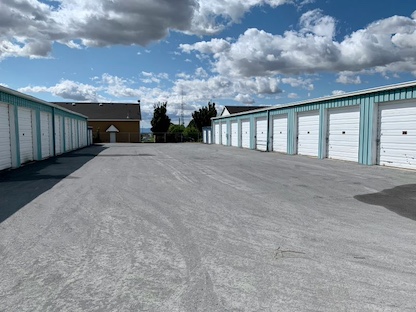The revenue generated by the global self-storage market has long been on the rise. But one new study is predicting higher revenues than even the most optimistic brokers would predict. This new research predicts that the self-storage niche will boast an estimated value of a surprising $83.67 billion by 2031.
That would represent a compound annual growth rate of 5.4% from 2024 to 2031, according to a May 15 report from Coherent Market Insights.
Coherent Market Insights reported that the global self-storage market continues to see high growth thanks in part to the development of mini storage spaces. Mini storage units usually range from 25 to 1,000 square feet. Customers use them to store items such as excess luggage, seasonal equipment, vehicles or bicycles.
As new supply enters the market, consumers continue to fill these self-storage units. Coherent reported that in 2024, the global self-storage industry genreated $57.76 billion in market revenue. That would be dwarved, though, if the value of this industry does reach the $83.67 billion figure predicted by Coherent.
Another factor fueling growth in the self-storage market is the enhanced development of climate-controlled storage units, Coherent said.
Climate-controlled units, which help to protect items from humidity, excess heat or cold, are in high demand for customers looking to store delicate items such as documents, photos, electronics and other goods susceptible to climate variations.
Busy lifestyles and small living areas have also increased the need for secure and accessible storage services, something that is fueling the construction of climate-controlled self-storage units across the globe.
With increasingly small household sizes and limited storage solutions at home, the demand for portable and furniture-storage units is also rising. These units provide flexible and movable storage options for daily-use items, furniture, seasonal goods and other belongings. Leading self-storage service providers are focusing on developing portable storage containers, cabinets and mobile shelving units to cater to the changing needs of customers, Coherent reported.
Demographic changes are powering the growth of the self-storage market, too. Millennials are switching jobs and homes more frequently than did previous generations. They also value flexibility and experiences over possessions. As a result, more millennials are opting for self-storage units to store their unused goods and avoid the burden of maintaining excess inventory, Coherent reported.
Coheren’s report also pointed to the many small and medium-sized businesses that are using self-storage for archiving records, storing inventory and housing equipment. Because office space is costly, these businesses are using storage units to free up their office space and reduce rental costs.
Some businesses also use storage for temporary storage of assets when they are shifting office locations. The increasing use of storage by businesses for flexible space and recordkeeping is opening new avenues of growth for self-storage providers.
Coherent reported that the North America region is expected to hold a dominant position in the self-storage niche, with the United States alone accounting for more than 70% of the regional market. Key growth drivers include space constraints in urban regions, higher disposable income and busy lifestyles, according to Coherent.




